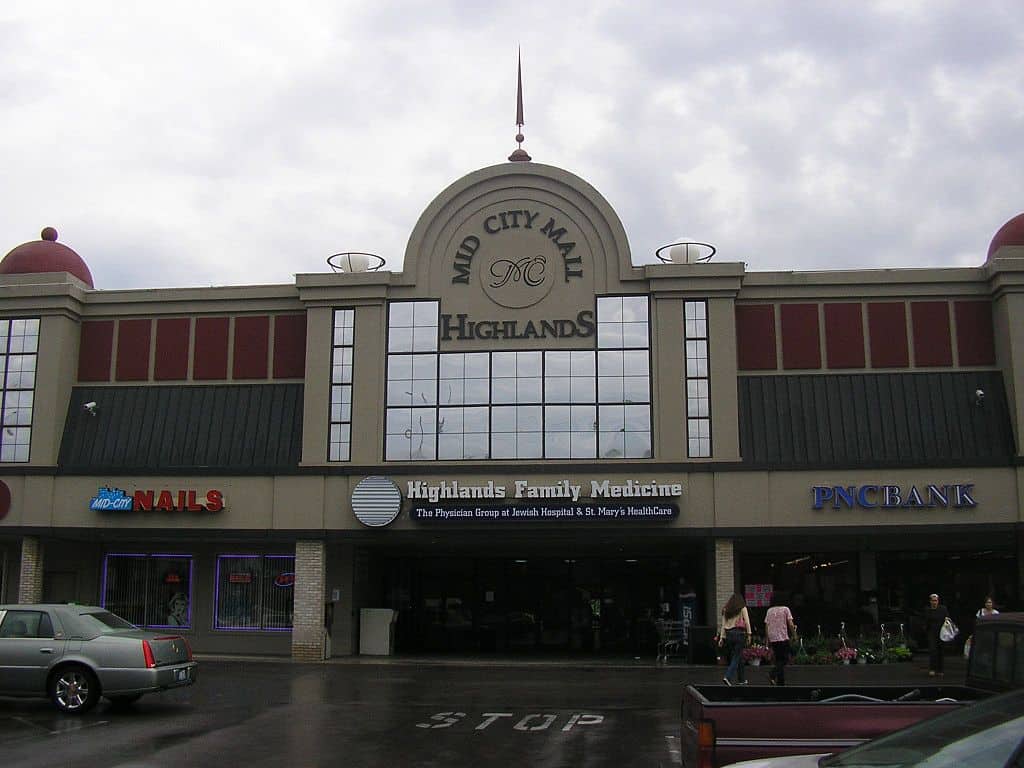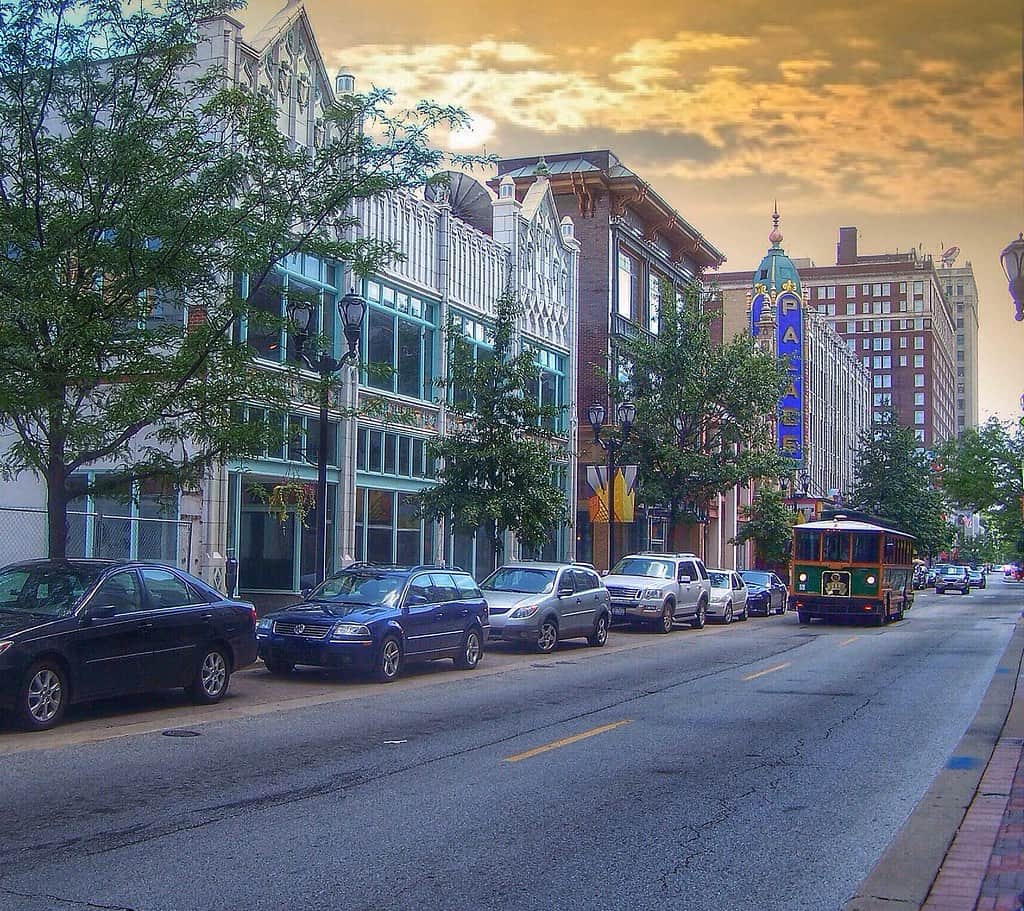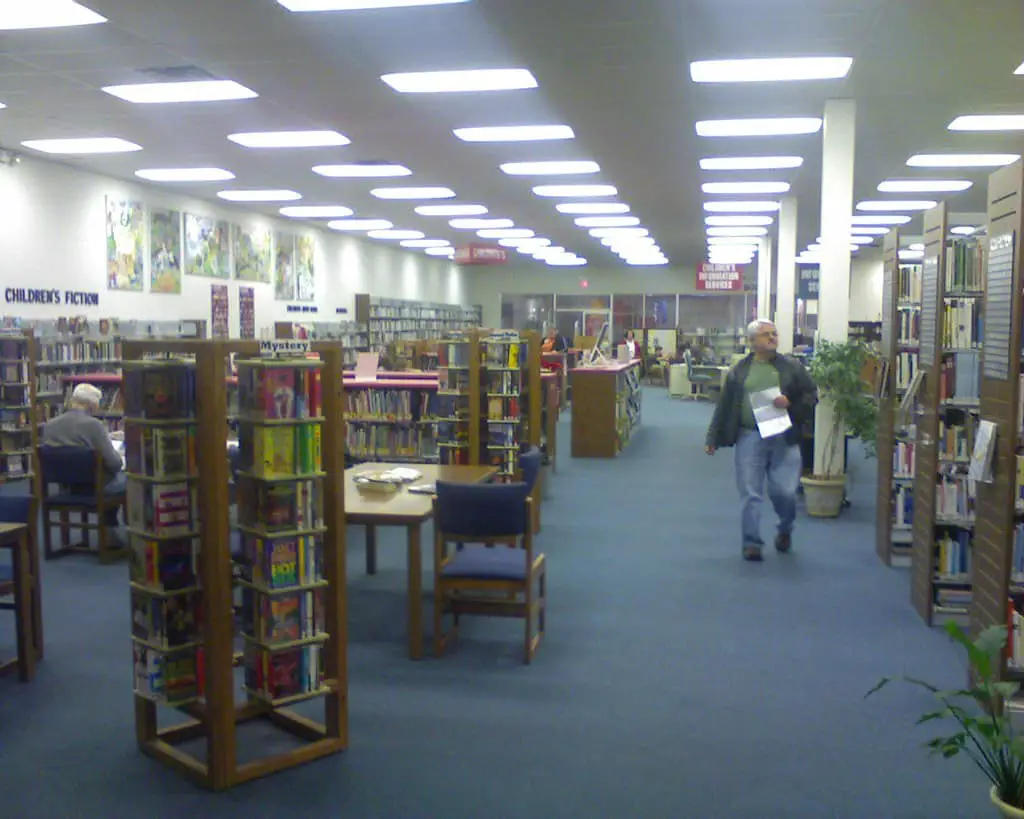Mid City Mall: A Louisville Landmark
Mid City Mall, located in the Highlands area of Louisville, Kentucky, has been a local shopping destination since its opening in 1962. The mall, which contains an enclosed shopping area, also houses various atypical features such as a comedy club, bar, grocery store, and public library.
In 1994, a Louisville Courier-Journal article declared the mall as the city's "crossroads" and described it as part shopping center, community center, courthouse square, and retirement-village recreation room.
Origins and Development
Mid City Mall was built on the German Protestant Orphan's Home site, founded in 1851, and moved to the 10-acre Highlands site in 1902.
The orphanage remained there until 1962 after the structure and grounds were sold to mall developers for $500,000 in 1959. After that, the old building was demolished, and the orphanage was relocated to Bardstown Road and Goldsmith Lane.
Developers then constructed what became Kentucky's second enclosed mall. The original plan in 1958 called for a $7.5 million five-story mall with a pool in front and penthouse apartments on the top floor. However, the project was eventually scaled down to a one-story building with a lower level.
The primary developer, Guy E. McGaughey, Jr., was an attorney from Lawrenceville, Illinois. The concept of an enclosed mall was still very new then, with only a handful existing in the US.
Construction and Opening
Construction began in March 1962, and the mall was completed in October of the same year for $3 million. The shopping center formally opened on October 10, 1962, with a ribbon-cutting ceremony attended by Louisville Mayor William O. Cowger and Jefferson County Judge Marlow Cook. The mall featured 180,000 square feet of leasable space and housed 22 stores.
Early Challenges and Controversies
Developer Guy E. McGaughey played an active role in the mall's early years, managing the Office Lounge and facing several legal issues. In 1964, a fire in the Cherokee Book and Card Stop, owned by McGaughey, caused $200,000 in damages.
He faced charges such as a battery, allowing after-hours drinking, and diverting lease revenue from mall tenants to himself. McGaughey eventually settled lawsuits but fell behind on mortgage payments and stopped paying for mall maintenance.

Mid-City Mall in Louisville, Kentucky" by Rividian, is licensed under Attribution-ShareAlike 3.0 License.
Bankruptcy, Renewal, and Neighborhood Action
By the mid-1970s, the Bardstown Road corridor was in decline, with the mall viewed as the epicenter of the problems. Issues with crime, poor maintenance, and structural deterioration were common.
To force improvements, surrounding neighborhood associations banded together and started a boycott of the mall in February 1975. This boycott partially led to the mall's foreclosure in the Fall of 1976 and receivership on January 1, 1977.
As the 1970s came to a close, the Metts family purchased the mall, demonstrating a greater willingness to enhance the property and collaborate with local community leaders. Many of those involved in the successful efforts to effect positive change formed the Highlands Commerce Guild in 1977, which continued to work to revitalize the Bardstown Road corridor.

Revitalization and Changes
Following the change in ownership, the land was leased for restaurant construction in the parking lot nearest Bardstown Road. In 1988, a traffic study recommended reducing the number of mall entrances and installing a traffic light, which was implemented in 1989.
The mall faced another decline in 1990 when anchor store Ames (formerly Zayre) moved out. However, the downturn was short-lived as new businesses moved in by the mid-1990s, and a $400,000 facade renovation took place in 1994.
In 1995, the former Ames location was transformed into an 8-screen movie theater known as Baxter Avenue Filmworks.
Controversial Benches and Unique Features
A contentious aspect of the renovation involved installing backless benches to discourage people from sleeping inside the mall. At the time, the "bums" of Mid City Mall had gained notoriety, even though many were not homeless and had frequented the mall for leisure for years.
Several of the mall's initial tenants were long-running local businesses such as The Jewel Box, Ehrmann's bakery, and a Winn-Dixie grocery store.
Over the years, other well-established local businesses joined the mall, including Maud Muller Candy Shop, Marianne Shop, Taylor Drugstore, and The Back Door, a bar that took over the space previously occupied by the Office Lounge.

Entertainment and Community Spaces
In 1987, a comedy club called the Funny Farm opened in a space previously occupied by Noble Roman's and Nick's Restaurant. The area has remained a comedy club, undergoing several name changes, most recently becoming The Laughing Derby at Comedy Caravan.
A large thrift store called the Nearly-New Shop moved to the mall's basement in 1988, occupying a space that was once a roller skating rink. The Nearly New Shop remains in business at the exact location today.
Throughout the late 1970s and early 1980s, the basement was home to the Derby Bowl bowling alley, complete with a bar and game room. Since 1979, the east side of the basement has accommodated a fitness gym, Jim Cain's Mid-City Fitness.
In 1993, two Louisville Free Public Library branches combined and relocated to the mall, occupying a space that had previously housed a Thrifty Dollar store. The library continues to serve the local community from its Mid City Mall location.
As a shopping center with a unique history and diverse range of services, Mid City Mall has weathered challenges and adapted over time to remain an essential part of the Louisville community.
